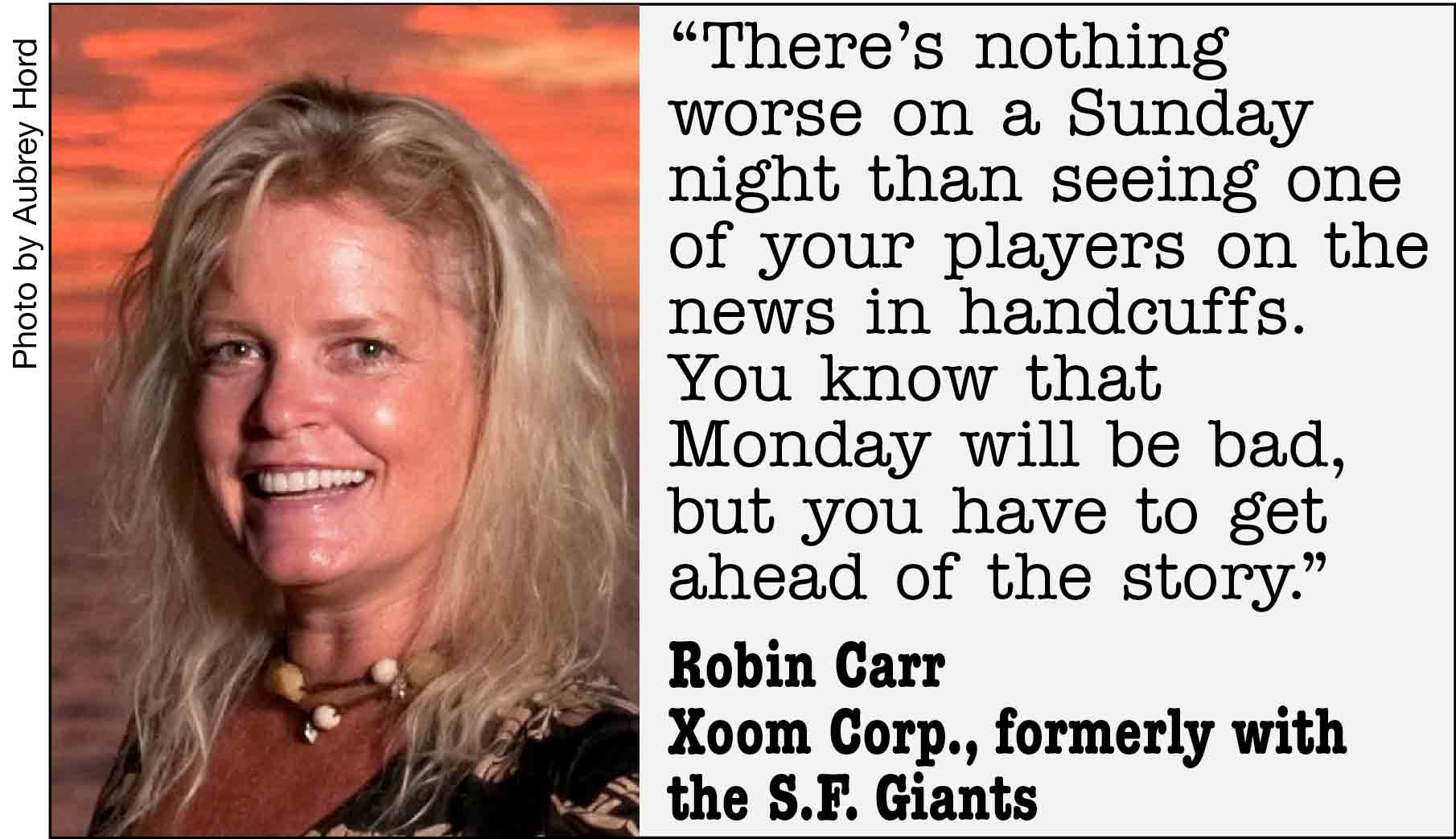Baseball may be a game, but don’t let that fool you. Major League Baseball is a very big business and the stakes are very high. Public relations fuels a big part of league revenues and every team must be on its toes when it comes to crisis management.
The Washington Nationals created a bit of a public relations crisis last week when they made the decision to prematurely end the season of their star pitcher Stephen Strasburg, one of the best young hurlers in the game. The Nationals had the best record in baseball, Strasburg was having a sensational season and the decision to shut him down (for potential) health reasons may have jeopardized the team’s World Series championship hopes.
While there was an immediate hue and cry, the crisis has the potential of becoming exponentially worse if the Nationals ultimately fail to win the World Series and that failure could be directly tied to Strasburg’s absence.
When most people think of a public relations crisis, they usually think of a major blunder that comes out of the blue; there’s an explosion at a factory or a new drug is found to have deadly side-effects.
The fact is, most organizations and businesses are well aware of when a crisis is on the horizon. Some put their heads in the sand and hope no one notices, others face the problem head-on, planning for every contingency, ready to turn on a dime depending on how things play out.
Harlan Loeb, U.S. director of Edelman’s Issues & Crisis group, estimates that 80% of the crises he’s handled have been known in advance.
PROS AND CONS
The question is, what do you do when you know you’ll be slammed? Loeb says you’ve got to weigh your options carefully. Conventional wisdom is to base your response on enterprise value—how much will your decision affect the value of your organization? “Usually it’s not a complicated answer—until you think about the consequences,” says Loeb.
Whatever the response, there should bias toward action, says Loeb. “The lawyer in me may be saying ‘inaction,’ and that is synonymous with lower risk. But I don’t agree with that,” he says.
Recently the Edelman team had a healthcare client that was about to be hit with some controversy. “We knew something had to be done before the news came out,” says Loeb.
So Loeb recommended what he calls a “controlled detonation,” using the opportunity to be the first mover in the situation. “Disclose the problem smartly. It could be a press release or phone calls to customers, but don’t under-communicate or over-communicate,” says Loeb.
TIME IS EVERYTHING
Whatever your response, remember that if you know a crisis is coming, time is on your side, and that can be the great equalizer, says Roger Friedensen, president and CEO at Raleigh-Durham, N.C.-based Forge Communications. Friedensen calls this situation a “smoldering crisis.”
Meaning, you know it’s coming and it may be punctuated by flare-ups. “But you have the luxury of time,” says Friedensen. Thus, you have time to take the following actions suggested by Friedensen:
1. Have time to get the facts straight. “You’re not in the fog of war,” says Friedensen. So ask and answer all questions, line up experts and do research of similar crises.
2. Have time to hone your messaging. You can sharpen you message, sub-messages and proof points, and think about the channels you’ll select to tell your side.
3. Have time to coach spokespeople on specific questions. “This is where you can hone in and ask questions you know will come initially,” says Friedensen.
4. Have the time to plan ahead for what is likely to happen. In an unexpected crisis, you’re moving so fast that you can only anticipate what will happen in an hour, if that. “Now you can project what’s likely to happen on day two, in a week or in a month,” he says.
I DON’T LIKE MONDAYS
 |
Robin Carr, director of public relations at San Francisco-based Xoom Corp., knows a little about putting out PR fires that are known in advance. As the former public relations director at video game maker Electronic Arts, it wasn’t unusual to launch a game and announce that a patch was forthcoming to fix a bug.
And, while with the San Francisco Giants for nine years as communications manager, Carr had to deal with instances of player misbehavior.
“There’s nothing worse on a Sunday night than seeing one of your players on the news in handcuffs,” says Carr. “You know that Monday will be bad, but you have to get ahead of the story as much as possible.”
Carr says in order to face those kinds of days, there are three points to remember:
• The relationships you have with the media are crucial. “ Being able to pick up the phone and explain the situation to a reporter who has your trust makes a big difference,” says Carr.
• Get as much information as you can. Learn the background of the possible crisis, getting exact details, because you’ll need them.
• Don’t leave a trail. If the potential crisis is a hot one, Carr recommends not leaving a paper or e-trail, which could come back to haunt you later. “Use the phone instead,” she says.
PR pros are paid doomsayers, muses Friedensen. “We think of the worst thing that can happen, and then try to manage that scenario effectively,” he says.
Just remember that transparency and credibility are the drivers in crisis response. “Always think that anything you do can end up on YouTube, on a blog or on Twitter,” says Friedensen. “It will come out.”
That’s why communicators and lawyers often have different takes on crisis response. Friedensen is apt to error on the side of transparency, living by the old PR adage: If you mess up, fess up.
CONTACT:
Harlan Loeb, [email protected]; Roger Friedensen, [email protected]; Robin Carr, [email protected]; Jennifer Byrd, [email protected].
Follow Scott Van Camp: @svancamp01

